About the Authors
Stephen C. Meyer earned his Ph.D. in the Philosophy of Science from Cambridge University for a dissertation on the history of origin-of-life biology, the logical structure of Darwin’s argument and the methodology of the historical sciences. He also holds degrees in Physics and Geology. He is currently the Director and Senior Fellow of the Center for Science and Culture at the Discovery Institute in Seattle. Previously he worked as a professor at Whitworth College and a geophysicist with the Atlantic Richfield Company. He has co-authored or edited two other books: Darwinism, Design, and Public Education (Michigan State University Press) and Science and Evidence of Design in the Universe. He has authored articles in scientific journals such as the Proceedings of the Biological Society of Washington and Trends in Ecologyand Evolution and in scientific books published with Cambridge University Press and Wessex Institute of Technology Press. He has also written many editorials on scientific topics for publications such as USA Today, The Wall Street Journal and The Los Angeles Times.
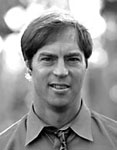
Scott Minnich holds a Ph.D. from Iowa State University. He is currently associate professor of microbiology at the University of Idaho. Previously, Dr. Minnich was an assistant professor at Tulane University. In addition, he did postdoctoral research with Austin Newton at Princeton University and with Arthur Aronson at Purdue University. Dr. Minnich’s research interests are temperature regulation of Y. enterocolitca gene expression and coordinate reciprocal expression of flagellar and virulence genes. Scott Minnich is widely published in technical journals including Journal of Bacteriology, Molecular Microbiology, Journal of Molecular Biology, Proceedings of the National Academy of Sciences, Journal of Microbiological Method, Food Technology, and the Journal of Food Protection.
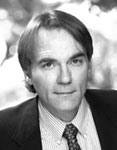
Jonathan Moneymaker is a freelance technical writer, specializing in making complex topics easy for the non-expert to understand. His work has been used in classes and workshops at Boeing, Ford Motor Company, People Management International, and Walt Disney World Company (Disney University). Usually preferring to work in the background, his credited work includes the lighthearted look at the origins debate, What’s Darwin Got To Do With It? His whimsical touch, analytical skill, and desire for clarity and readability all played key roles in writing this book.
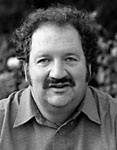
Paul A. Nelson is a philosopher of science who received his Ph.D. from the University of Chicago (1998), where he specialized in the philosophy of biology and evolutionary theory. His dissertation, “Common Descent, Generative Entrenchment, and the Epistemology of Evolutionary Inference,” critically evaluates the theory of common descent. He is currently a Fellow of the Discovery Institute, an Adjunct Professor at Biola University, and a member of the Society for Developmental Biology and the International Society for the History, Philosophy, and Social Studies of Biology. He has published articles in such journals as Biology & Philosophy, Zygon, and Rhetoric and Public Affairs, and scientific and philosophical papers in technical anthologies from MIT Press and Michigan State University Press.
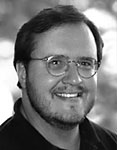
Ralph Seelke received his undergraduate education at Clemson University (BS, Microbiology, 1973). He received his Ph.D. in Microbiology from the University of Minnesota and the Mayo Graduate School of Medicine in 1981, was a postdoctoral researcher at the Mayo Clinic until 1983, and has been an Associate Professor or Professor in the Department of Biology and Earth Sciences at the University of Wisconsin-Superior since 1989. Dr. Seelke’s research in experimental evolution has been well-regarded, and in 2004 he was a Visiting Scholar in the Department of Microbiology and Immunology at the Stanford University Medical School, conducting research to further our understanding of evolution. An authority on evolution’s capabilities and limitations in producing new functions in bacteria, he has co-author eight publications in such journals as Proceedings of the National Academy of Science, Journal of Bacteriology, and Molecular and General Genetics. Prof. Seelke is a member of the American Society for Microbiology.
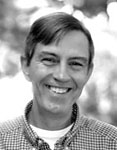
For Discussion on the Debate, visit:

